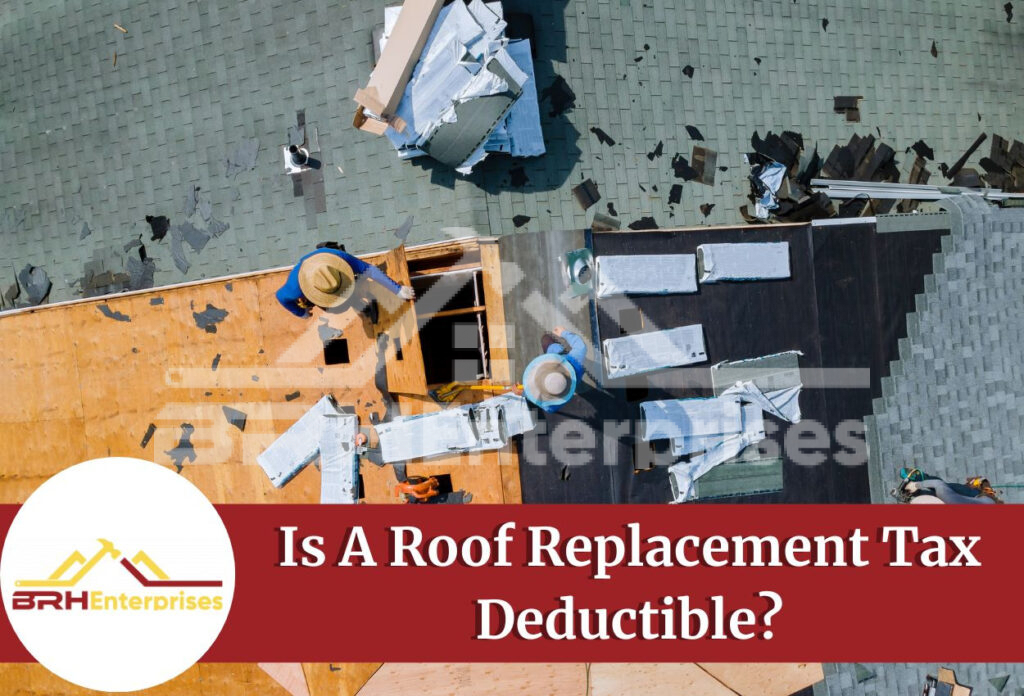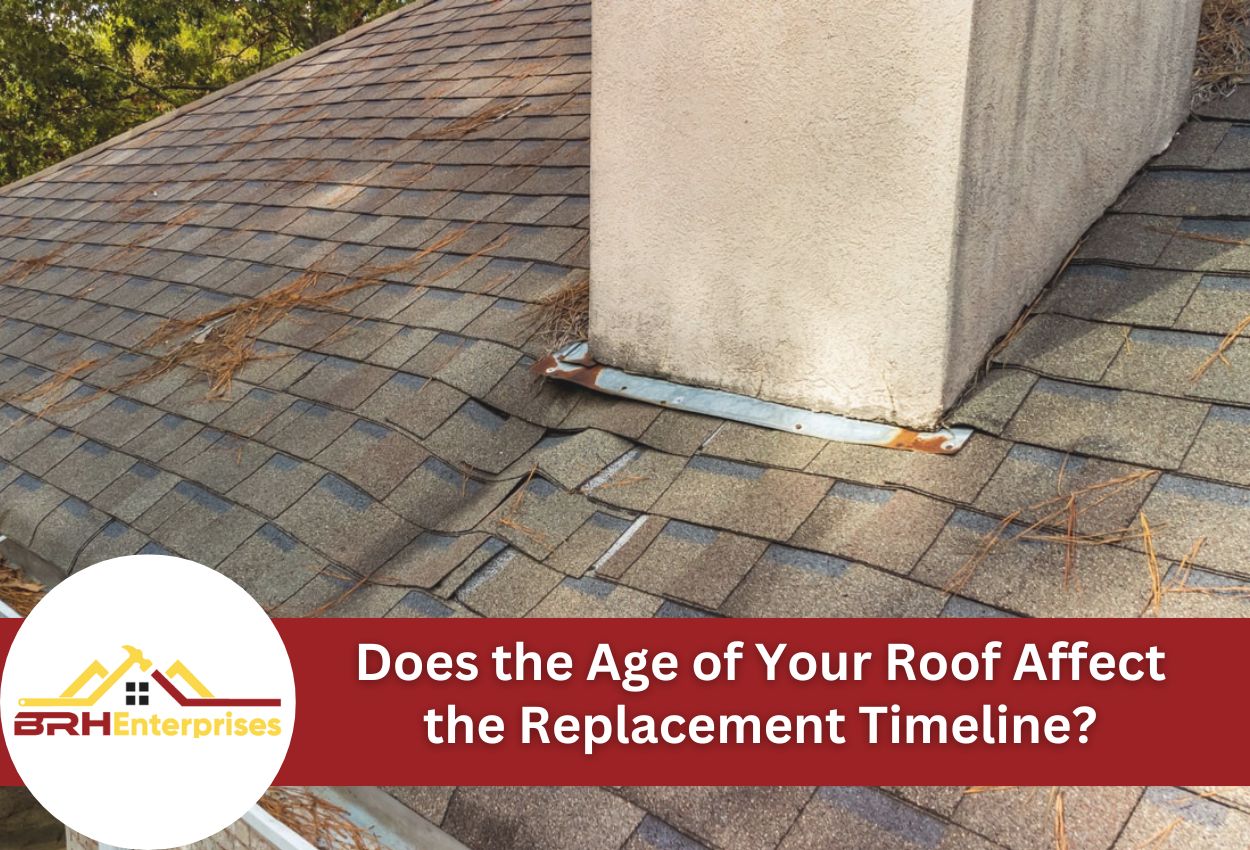
We all know a roof replacement is an important investment in any property. But depending on your circumstances, you might wonder if you can deduct the expense of your roof replacement from your taxes. In fact, this is a very valuable way to save money, but you need to know the circumstances that make it possible.
As a trusted local roofing company, our team at BRH Enterprises LLC always attempts to help our clients with questions and roofing situations they find themselves in. That’s why, in today’s article, we will cover what type of roof replacement is, and is not tax deductible.
When Is Your Roof Replacement Tax Deductible?
Although a roof replacement isn’t always tax deductible for your primary residence, there are several important situations where you might qualify for tax benefits. Let’s take a look at these scenarios to help you make an informed decision about your roofing project.
#1 Rental Properties
If you own a rental property, you’re in luck. A new roof for your rental property is tax deductible, though not all at once.
Rather than claiming the entire cost of the roof replacement in a single year, you’ll need to depreciate the expense over your property’s useful life, which is typically around 26 to 27 years for rental properties. This means you deduct a portion of your roof replacement cost each year from your taxes.
#2 Home Office Considerations
If you have created a space in your home to use for your personal business you might be able to deduct a portion of your roof replacement cost.
The deduction is based on how much of your business the roof covers. For example, if your personal business is covered by only 20% of your home’s roof, then you might only be able to deduct 20% of the roof replacement cost.
#3 Energy-Efficient Upgrades
Making energy-efficient improvements to your home can be particularly beneficial come tax time.
If you decide to install certain energy-efficient roofing materials, you might qualify for federal tax credits. These credits tend to cover up to 10% of the cost of materials (excluding installation), as long as the materials are Energy Star-certified metal or asphalt shingles designed to reduce heat gain.
#4 Special Cases: Disaster and Insurance Claims
In some cases, your roof replacement might be tax deductible if it’s necessary due to a federally declared disaster.
These situations are handled differently from standard home improvements, and it’s important to keep detailed records of all expenses and insurance claims.
When You Can’t Deduct A Roof Replacement
It’s just as important to understand when a roof replacement isn’t tax deductible. Here are some common situations where you won’t find yourself eligible for tax deductions on a roof replacement for your building.
#1 Primary Residence Limitations
For most homeowners, replacing the roof of their home is typically not tax deductible. However, you shouldn’t feel discouraged, as these improvements can still benefit you by increasing your home’s value, which might reduce the capital gains tax when you eventually sell your home.
#2 Regular Maintenance and Repairs
Simple repairs, such as fixing a few damaged shingles or addressing minor leaks, generally don’t qualify for tax deductions on personal residences. These are considered regular maintenance rather than capital improvements.
#3 Standard Roofing Materials
If you choose to install standard roofing materials that don’t meet specific energy-efficient criteria, you won’t be eligible for energy-related tax credits.
However, this shouldn’t be the only factor in your roofing decision. Durability and local climate considerations are equally important.
Important Considerations While Calculating Tax Deductions For Your Roof Replacement
Whether your roof replacement is tax deductible or not, it’s a valuable investment in your home’s future.
At BRH Enterprises LLC, we help homeowners throughout Mayville and Wisconsin make informed decisions about their roofing projects.
Remember to keep these things in mind when planning your roof replacement:
👉 Document everything: Make sure that you maintain a detailed record of all expenses, including materials and labor costs.
👉 Research energy-efficient options: These might help you qualify for tax credits while reducing your energy bills later on.
👉 Consult professionals: Work with both roofing experts and tax professionals to make the most of available deductions
Schedule Your Professional Roof Replacement In Wisconsin Today
At BRH Enterprises LLC, we are committed to providing high-quality roof replacements in Mayville, and the surrounding areas in Wisconsin.
We not only provide roof replacements, but we also provide professional repairs and new installations for your home. Our team will closely assist you in estimating whether or not your roof replacement is eligible for tax deductions.
Not only do we help with this, but we also help with each step of your roof replacement project. We know that replacing a roof is an important investment for any homeowner, so we guarantee valuable results.
For a no-pressure discussion with our roofing professionals, or, to get a free custom quote for your roof today, feel free to call us at (920) 249-4228.
FAQs
A. If your home-based business uses a portion of your house for work-related purposes, you might be able to qualify for deductions. The IRS requires exclusive and regular use of the space for businesses to claim home office-related deductions.
A. Yes, solar roofing systems often qualify for federal tax credits under the Residential Energy Credit program. However, only the portion of your roof directly related to solar energy production is eligible. Other aspects of the roof may not qualify.
A. Yes, to claim energy-efficient roofing tax credits, homeowners must provide documentation, such as receipts, Energy Star certification, or manufacturer statements that indicate compliance with IRS guidelines.
A. Yes, it’s important to consult with a qualified tax professional about your specific situation. Tax laws can change, and what’s deductible one year might not be the next.

Bryce, Master Roofer
Protect Your Home with Expert Roofing
Don’t wait for leaks or storm damage to cause costly repairs. Our experienced roofing team provides fast, reliable service, high-quality materials, and lasting results. Ensure your home stays safe, secure, and looking great—contact us today for a free estimate.




